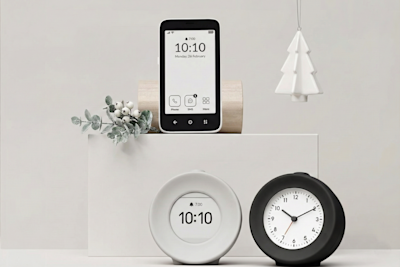
How to nurture relationships in the digital age
How the digital age affects relationships?
When was the last time you actively went out with friends or relatives just for the sake of enjoying each other's company?
These days, it seems like technology has an impact on almost every aspect of our lives—and that includes how we communicate, stay in contact and relate with each other.
Basically doing things virtually has become a way of life. Although there are many benefits to using digital technology, there is one major drawback: people are starting to lose touch with their real-world friendships. The more people are online, the less often they get out of the house to meet up with friends and family. This can be especially true for those who work from home and don’t have regular office hours.
When everyone is tethered to technology, it can be quite difficult to rectify this problem. However, we have to understand that if we want to stay connected with the ones who mean the most to us, we have to be prepared to slow down to make a commitment to nurturing our relationships.
With that in mind, let’s take a look at why connecting with people in the real world is vital to health and overall well-being and how you can improve & nurture your personal relationships in the digital era.
Why meaningful relationships matter
Psychologists believe that humans require connections with other people in order to feel a sense of security and belonging. However, our society continues to become more and more isolated, while we spend hours on end staring at our smartphones or computer screens. [1]
Research shows that spending time with loved ones can actually improve our mental health.[2]
That’s right, being social with others is important to our health and overall well-being. In fact, the American Association for Retired Persons (AARP) released a study that found, "94% of adults surveyed believe that relationships with others are important to quality of life, and 87% believe social relationships are extremely or very important to living successfully as they age."
Another fascinating study from the Harvard School of Public Health suggests that people who are socially connected can potentially enjoy a 50% reduction in their risk of developing Alzheimer's disease. Additionally, the study found that the more social you are, the longer you can expect to live.
The truth is, studies have shown that the more time we spend on our phones or computers, the worse we feel. Loneliness and social isolation have become epidemics in our society, and there seems to be no stopping this trend.[3][4]
Optimistic writing and research studies point out that participating in social activities and relationships play an important role in our overall well-being—physically, socially and psychologically. That’s why it’s so important for us to connect with the people in our lives.[5]
Use technology mindfully
While we all love to stay connected with one another via social networks, it's important to remember that this is not a substitute for meaningful face-to-face conversation. While writing an email to an old friend or family member may certainly bring back some fond memories and help you reconnect with them, it doesn't actually fulfill their physical needs and well-being the way an in-person interaction can.
That's why it's important to find balance by taking some time away from technological devices, and putting your focus on other pursuits that bring you closer to one another.
While balancing technology with face-to-face time can sometimes be difficult, you can still find ways to balance those aspects while maintaining meaningful relationships. Set goals that are achievable. When you want to make plans to spend time with friends or family members, you can use social media to reach out to someone and make a plan to meet in person. However, it's important to distinguish that following someone's life on social media does not mean that you're aware of everything that's going on in their life. For example, a friend might post beautiful vacation photos, while at the same time going through some turmoil in their personal life. When you reach out and make the time to meet for a meaningful face-to-face conversation, they are more likely to open up about everything you don't see just by scrolling through their feed.
The power of the phone call
When it comes to nurturing relationships, communication is key. Although we may find it easier to send a text message or email than pick up the phone, actually making a phone call to a friend or family member, to hear their voice, is a great way to strengthen your relationship. The truth is, hearing someone's voice is more powerful than any text. In fact, according to psychology professor Albert Mehrabian, as much as 38% of communication about feelings occurs through our vocal tones. [6]
Even if you're not talking to them face-to-face, hearing their voice gives you a reason to keep in touch - even if it's just for a few minutes. You can even record a voicemail so that there's a message they can listen to whenever they want to.
Don't neglect the relationship you have with yourself
Another relationship that is important to nurture is the one we have with ourselves. When we take time to take care of ourselves — making sure we eat well, exercise, spend time in nature, in addition to taking some 'ME' time to do something relaxing — we are more likely to nurture relationships with others. After all, loving and caring for our bodies and minds will have a positive impact on our social interactions.
If you enjoyed this article, please check out similar ones featured on our blog and learn more about how living more of your life offline with less distractions can help enhance your health and overall well-being.
You might also consider joining our FORUM Community where we discuss ideas and exchange information about all things connected to wellness and digital well-being.
Related stories

Why Mindful Tech Presents are the Best Gifts for Friends & Family
Why mindful tech may be the most thoughtful gift you can give your family. Less distraction, more presence, and healthier relationships with technology.

Black Friday and The Luxury of Disconnection
Explore how disconnection has become a modern luxury and how Mudita’s mindful products make calm, presence, and digital balance easier to achieve.

Mudita Products Achieve Calm Tech Institute Certification
Mudita Kompakt, Harmony 2 & Bell 2 earn Platinum Tier Calm Tech Certification for promoting calm, focus, and better sleep.
If you'd like to receive the best stories from our blog, keep up to date with our progress and get notified about our product releases and special discounts.